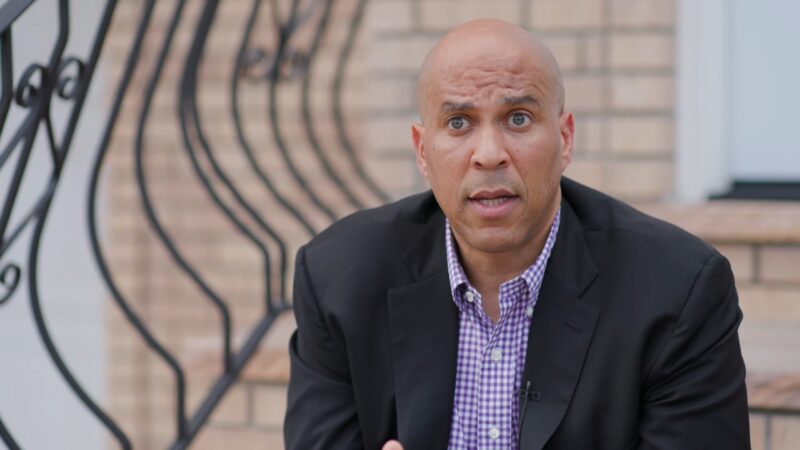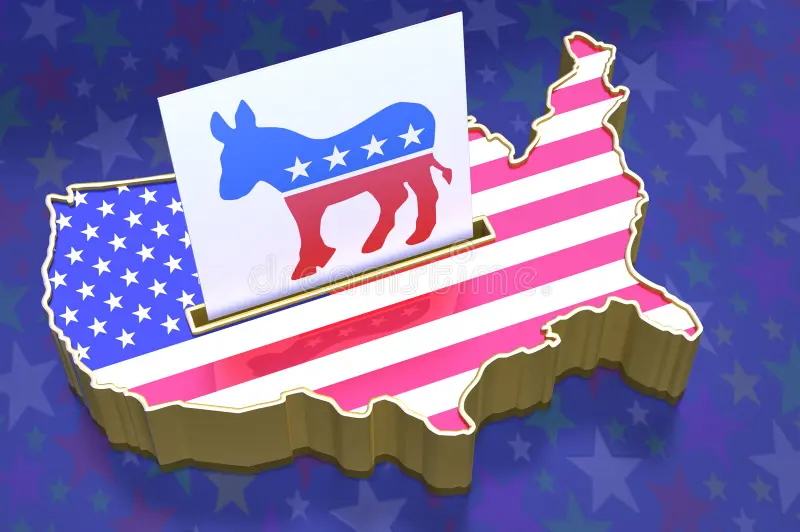We may still be over a year out from the 2018 midterm elections, but that won’t stop early speculation into who will be competing for the White House against the presumed reelection campaign of Donald J. Trump. The Democratic Party is in the midst of a branding transition after the disastrous results of the 2016 Presidential Election, fractured between the more traditional “Clinton Democrats” and the now-emboldened “progressive” wing of “Sanders Democrats.”
The split has occurred after an ugly internal conflict between the two wings throughout the 2016 primaries, and a sudden disappearance of recognizable national names on the left side of the spectrum has exacerbated the power vacuum within the party. United almost exclusively to oppose the President, the competing factions of Democrats are in search of a unifying presence for 2020 that can heal the wounds created in recent years and fill the marketing void left by big names like Clinton, Biden, and Obama.
With uninspiring household names like Pelosi and Schumer rounding out the heights of the liberal leadership, it’s natural to start looking for the next Democratic darling that will plunge the party into its next phase.
Rising “Centrists”

The primary names you’ll see floating around twitter regarding the Democratic 2020 preference so far in 2017 are Kamala Harris and Cory Booker. Harris, a relatively young African American freshman senator from California and former state Attorney General, has already started to get support from Clinton staff and donors for 2020. She is seen as being groomed as an anti-Trump centrist Democrat, in order to appeal to the old guard of the Democratic Party while consolidating Never Trump voters behind a candidate with a genuine track record of opposing the policies and behavior of the current administration.
Young, respected, accomplished, and suddenly well-known, Kamala Harris appears at the moment to be the frontrunner for the Democratic nomination. However, she faces a major electability issue that plagued the ill-fated 2016 Clinton campaign — the “progressive” wing of the party doesn’t seem that wild about her. Perhaps too similar to Clinton’s style, Harris has a reputation for being all talk and and not following through.
Claims that lawyers from her office argued in court, that releasing prisoners early would drain the State of California of “cheap prison labor,” has given “Sanders Democrats” an easy target for tagging the junior senator as an authoritarian sellout. Harris is also plagued by accusations of confusing favoritism toward Steve Mnuchin after failing to prosecute seemingly “obvious” illegal real estate activities.
Mnuchin also has a financial connection to Harris, with Harris receiving a donation from Mnuchin in a donor relationship that could easily parallel the dreaded Goldman Sachs speaking fees talking point that plagued Hillary Clinton’s efforts throughout 2016. All things considered, there is meat on the bone for a legitimate White House push for Kamala Harris. However, perceived similarities to Hillary Clinton, and suspicious donation ties could sink any presidential bid once put under the scrutiny of an actual election campaign.

Cory Booker is the other name that has been floated around with Harris in regards to 2020. His similarities with Harris are obvious — relatively young (forty-eight to Harris’ fifty-two), African American, junior senator from New Jersey. Booker also has a tangible record of opposing the Trump Administration and its appointments. He also has a few Democratically friendly accolades like being the first black man elected to the Senate since Barack Obama in 2004.
Booker has his issues, however, like his weird public relationship with a sort of famous stripper that, while definitely funny, ultimately may not play well with a national audience. Booker’s cavalier comments in general could doom a potential 2020 run, but after the changes to the political landscape in 2016, it’s hard to ignore his extemporaneous nature and somewhat crude comments that could endear him to the Democratic base as an “everyman.” That being said, Booker’s everyman status could be threatened by his apparently obvious and suspicious connections to Wall Street — a sentence alone that could irreparably disconnect him from the seemingly picky Sanders wing of the party.
Oldies But Goodies

Of course, the Democrats could always spurn up-and-comers and settle back into the ghosts of elections’ past. As I mentioned earlier, there is a lack of big names in the Democratic Party that are actually serving in office. Without the Obama administration, the majority of household names on the left side of the aisle are on a beach somewhere hiding from reporters and Benghazi panels, while enjoying their retirement. If the Democrats struggle to find an Obama-esque ”super candidate” to run in 2020, it’s possible they call on some big names to swoop in and save the day.
The most likely of this type of candidate seems to me to be Joe Biden. The former Vice President openly regrets not running for and becoming President in 2016 and has shared in the existential crisis that Donald Trump’s election has created for many liberals, albeit with far more forgiving language toward the President than most of his Democratic peers. The most obvious prevention from a 2020 Biden Administration is that Golden Joe is already 74 years old in 2017, and would be 78 by the time he’d take office.
Donald Trump is 71 years old and has been occasionally accused of having dementia, and other old age related mental illnesses after having exhibited some specific and bizarre behaviors — and Ronald Reagan’s Alzheimer’s in his second term has been well documented. By the end of a hypothetical second term, Joe Biden would be an astounding 86 years old.
With most Americans affected by loved ones in that age range struggling with the afflictions of later years, it would only be natural for voters to shy away from a Commander-in-Chief facing similar issues. On top of this, while Sanders Democrats may prefer Biden to Harris and Booker, the main detraction against Sanders himself running again is his age as well. This leaves the Sanders wing of the party in a tough spot, as their preferred establishment candidate shares the same electability flaw as their flagship senator.
Articles and opinion blogs around this topic will hold a constant presence over the next three years, and predictions of this sort are almost impossible. Until the midterms of 2018, it will be difficult to understand where the chips of 2020 may fall, but it is worth taking inventory of the Democratic establishment to follow along with the right candidates as they make their moves toward the White House.
It’s hard to guess which direction the Democrats will take their party in the midst of this branding transition, but we can be sure that the factions within the party are jockeying for power amongst themselves. The battle for the party between “Sanders Democrats” and “Clinton Democrats” is in its early stages, with each side picking their darlings and preparing for battle. The arms race to follow over the next few years could determine the direction of our country in the unknown quantity in what could soon be the post-Donald Trump world.
